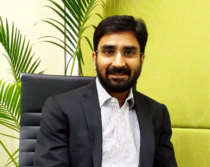
The insurance sector is being seen as a big beneficiary of the Covid-19 crisis. Can you tell us how the market has really changed and what are the numbers suggesting?
Yes, Covid-19 has been a big advertisement for health insurance. The fact of the matter is, the threat of death makes people a lot more aware of their lives. Health insurance is a living benefit product; so there is a lot of shift happening in the mindset of the consumers. People have started realising that falling ill is now a distinct possibility. They have understood that insurance has to be bought to not just provide a safety net. It is not a ‘what if’ anymore and is now being seen as a saviour. It is not about preparing for the rainy day because the rainy day has already arrived. So I think this entire shift in a consumer’s mind will generate demand for health insurance.
But before Covid also, the government had been doing a lot of initiatives around Ayushman Bharat and put a lot of money into this year’s budget around the healthcare sector. So health was already a topic which was there and awareness was getting built by the government, the regulator and the insurance industry.
There is a distinct possibility that anybody can get infected by Covid. So no matter how healthy a lifestyle we keep, we can become Covid positive tomorrow. Therefore, from a health financing perspective it is important and therefore health insurance has a very bright future as we move along.
The lockdown period helped financial firms offering push products to do good business. What would you attribute it to – the fear factor, the ideal time or did digital adoption also have a part to play here?
I think fear factor definitely played a role because not only are we seeing people buying some of these products, but we are also seeing a lot of activism in the form of renewals going up. So people who are already covered by health insurance want to continue with their continuity benefit and therefore, our renewal rate has gone up by a couple of points in the last one month.
Number two, people during their renewal are increasing their sum assured value because if you already have a health insurance product, Covid is already covered for an existing customer and there is no need to buy a separate cover. So what is required is an increase of sum assured for people whose renewals are now coming. So we are seeing a lot of people asking for an increase of the sum assured or adding more of their family members into the family floater plan. That is one change that we are seeing.
The other change that we are seeing is people asking first for a top-up product. If somebody already has a Rs 5 lakh policy and the renewal is not due (the sum assured can be increased only during the time of renewal); so for those customers whose renewal is not due, we are seeing some increase in sales of a top-up product. Obviously digital adoption is increasing from a distributor point of view. Distributors like agents, banks or corporate agencies are adopting digital in a very big way and customers are also adopting digital quickly. Therefore, we see more and more people coming on our websites enquiring about health insurance. So it is a mix of fear which is resulting in digital adoption very-very quickly, resulting in higher sales.
Let me touch a little bit upon the stock market. The market has really lapped up insurance as the sunshine sector but this space is still dominated by PSU behemoths and private players have not really been able to make a big dent in the last three decades or so. How do you look at that challenge? What is the progress made so far and the opportunity available there?
No, the insurance sector was privatised in the year 2000. I have been a part of the life insurance industry since the beginning of the privatisation of life insurance in this country and at least on the life insurance side, you will see that the private players have made a big mark. There were years when the private life insurance total share of the life insurance business was more than 50%. They started off with zero and moving to close to the 50% mark in 10-12 years shows the kind of innovative product and services that the life insurance sector has been able to bring in.
If you look at the health insurance, I think the privatisation happened in 2002 and I think the private players started coming in 2002-2003 and the health regulation started coming in 2004. The private players have made quite an impact in the overall retail health insurance space. Health insurance as you know is close to around Rs 50,000 crore market; half of it is group insurance, half of it is retail insurance. In the retail health insurance space, the private players have made a significant mark today. Although in the life insurance sector, there is only one PSU which is the LIC, in the general insurance space, we have four PSUs but in spite of that, the private general insurance players along with the standalone health insurance players have made a considerable mark in the overall health insurance space.
The stock market is continuing to fancy insurers. Do you expect a rush among the private life, general and health players to get listed once the dust settles?
Well, listing is a shareholder decision. I do not think I will be able to comment on that. What I can tell you is that insurance and particularly the life insurance business is a long tail business. So two months of Covid or three months of lockdown does not really impact the overall ecosystem of the industry. I personally believe that insurance overall in this country, given that the penetration level in the life insurance, general insurance and health insurance space is so low, there would be a lot of opportunity for a whole lot of growth in the market.
Therefore, I personally believe that the investor community will see the sector with a different lens because this is a long tail business. There may be some short-term impact definitely because many of the insurance industry, life insurance particularly, sell unit-linked products and markets are down by 30-40%, which will impact a bit of their cash flows and profitability. But in the long run, insurance has always been a sunshine industry. The uncertainty and the volatility of Covid-19 will only make sure that people buy more and more insurance, particularly health insurance.
If you buy health insurance, you pretty much take care of three objectives straight away. One, you have access to quality healthcare for the rest of your life. Two, whatever your life goals are, they remain protected simply because you have health financing supporting you if something happens and you do not have to dip your hands into your savings. You have an insurance company to support you. Therefore, your life goals will continue to be protected. Three, as health insurance companies give a lot of discounts like renewal discounts, the chances are that you will lead a far more healthier life because you want to get those discounts next year at the point of renewal.
So overall, with stock markets going down, I am not sure whether we will have a major impact on the overall insurance industry, but capital will flow into the insurance industry and I think more and more growth will happen. As more and more people buy health insurance, the chances are that there may be some bit of an affordability that will also be driven by the overall health insurance industry and that will make sure that the large numbers start playing up. Therefore, insurance companies will start getting profitable and when profitability happens, I am sure the shareholders would want to look at listing the company.
Covid disruption has kind of led to consolidation across industries. Do you see that kind of wind blowing in your industry and are you exploring any such opportunity?
I do not think consolidation at this stage is an important discussion because people can see growth in front of them, particularly in the health insurance industry. As long as there is growth, capital will flow into the health insurance industry. So until and unless there is a situation of no growth, you basically look at some consolidation to ensure that the fixed cost has been managed better and so on and so forth. The health insurance industry is looking at growth and therefore I do not see any reason why the subject of consolidation will be discussed at this point of time. Surely from our perspective, our shareholders are committed for the long term and therefore there are no discussions that are happening.
source: economictimes

